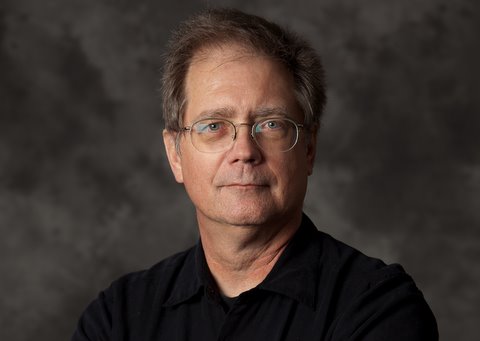TOM SLOPER | SLOPER PRODUCTIONS | LOS ANGELES, CALIFORNIA
consultant + professor
Bio: Tom Sloper is a veteran game designer and producer, having worked in the industry for 30 years. He’s worked at Sega, Atari, Activision, and Yahoo, and has spoken at GDC, KGC, and the Smithsonian. Sloper consults as Sloperama Productions, and teaches video game courses at the University of Southern California.

Jovan Johnson, app attorney: You worked for major gaming studios prior to taking your post with USC. How was your transition to academia?
Tom Sloper: I want to say it happened accidentally, but I’d actually been preparing for it as a side activity. After leaving Activision in 2000, I tried a lot of things. I took some classes, I designed some dice games, I built my website, I wrote a business plan for a business acquisition. The acquisition fell through, I found no takers for the dice games, and I was finding work sparse, so I expanded my activities. I did some classes at the Learning Annex, and enjoyed it. So when I was approached by Cal State Dominguez Hills to teach a series of weekly one-evening extension courses, I went for that. That was great for a while, and then a small school opened up in Hollywood, called the Academy for Game Entertainment Technology. I did a full course on game design, and one on producing games. After a couple of semesters of that, I had pretty well developed the material. So when USC put out a call for someone to teach Designing and Producing Video Games, I was there with an already fleshed out syllabus. I’ve been enjoying teaching that course, and Video Game Quality Assurance, and this semester I’ve been teaching Game Startups Workshop. I really enjoy teaching young folks about my beloved industry.
Jovan: When I was in school I didn’t see many classes offered for those interested in game industry. What do you think about the evolution of academic offerings?
Tom: The scene has changed completely since 2000. Back then, there were just Full Sail and DigiPen. The focus was on programming or art, and every school called their offerings “game design,” even though nobody actually taught genuine game design then. None of the schools then offered courses on project management, either. But that’s all changed. I think it’s great that now students have choices that include mainstream colleges and universities, as well as the for-profits, and that they can now find courses on design, production, quality assurance, music, and audio.
Jovan: Do you think aspiring developers are best served by starting off working with a major studio?
Tom: It doesn’t matter where you start, but it’s unlikely a raw graduate can get into a major studio as his or her first job. I think working at a small studio offers a lot of opportunity for learning and growth. I wrote about that in my January 2008 column, “The Games Game,” on IGDA.org.
Jovan: Do you have any tips for new developers?
Tom: Yes, lots–in my IGDA column and on my website. But of course the term “developer” is very broad; it might mean a studio or an individual.
Jovan: In addition to working as a professor, you consult. What is the scope of your consulting?
Tom: It varies. I’ve helped clients with design doctoring (fixing an ailing design doc), polishing business plans, and design ideation. I’ve been approached by clients interested in jumping on the mah-jongg bandwagon, and I’ve also done some legal work, expert testimony, that sort of thing.
Jovan: Do your clients tend to fit a certain profile?
Tom: They’re from all parts of the spectrum. Businessmen just getting into games, professionals and grads forming startups, and sometimes enthusiastic young guys with a game idea but no business idea. It makes me sad to have to be the one who has to tell idea guys that they need to be businessmen, not just game designers.
Jovan: What has been your biggest professional success?
Tom: My work on the Shanghai franchise at Activision. It’s too bad that it Activision wasn’t able at the time to adapt to new business models and keep the franchise alive into the internet age. But my work on Shanghai started me on a deep and lasting interest in mah-jongg, which led me to write a book and play at competitions internationally.
Jovan: How can those interested in your services get in contact with you?
Tom: By email or phone. My email address is tom@sloperama.com. My phone number is easy enough to find on my website. I don’t broadcast it, because I get women interested in mah-jongg calling me at odd hours if my number is too easy for them to find.
Contact Tom regarding
Social
Back to The Developers Project
more on App Law